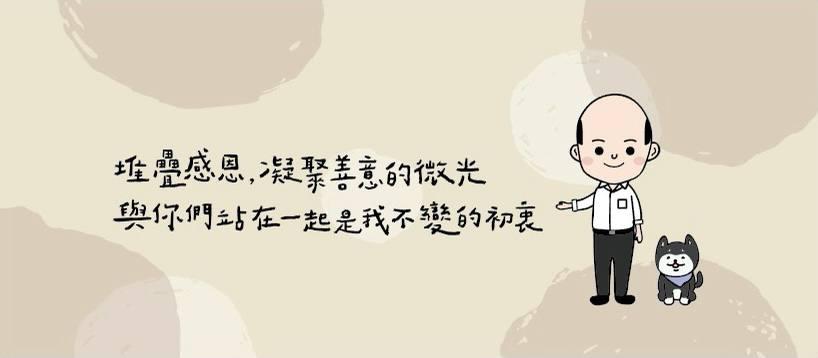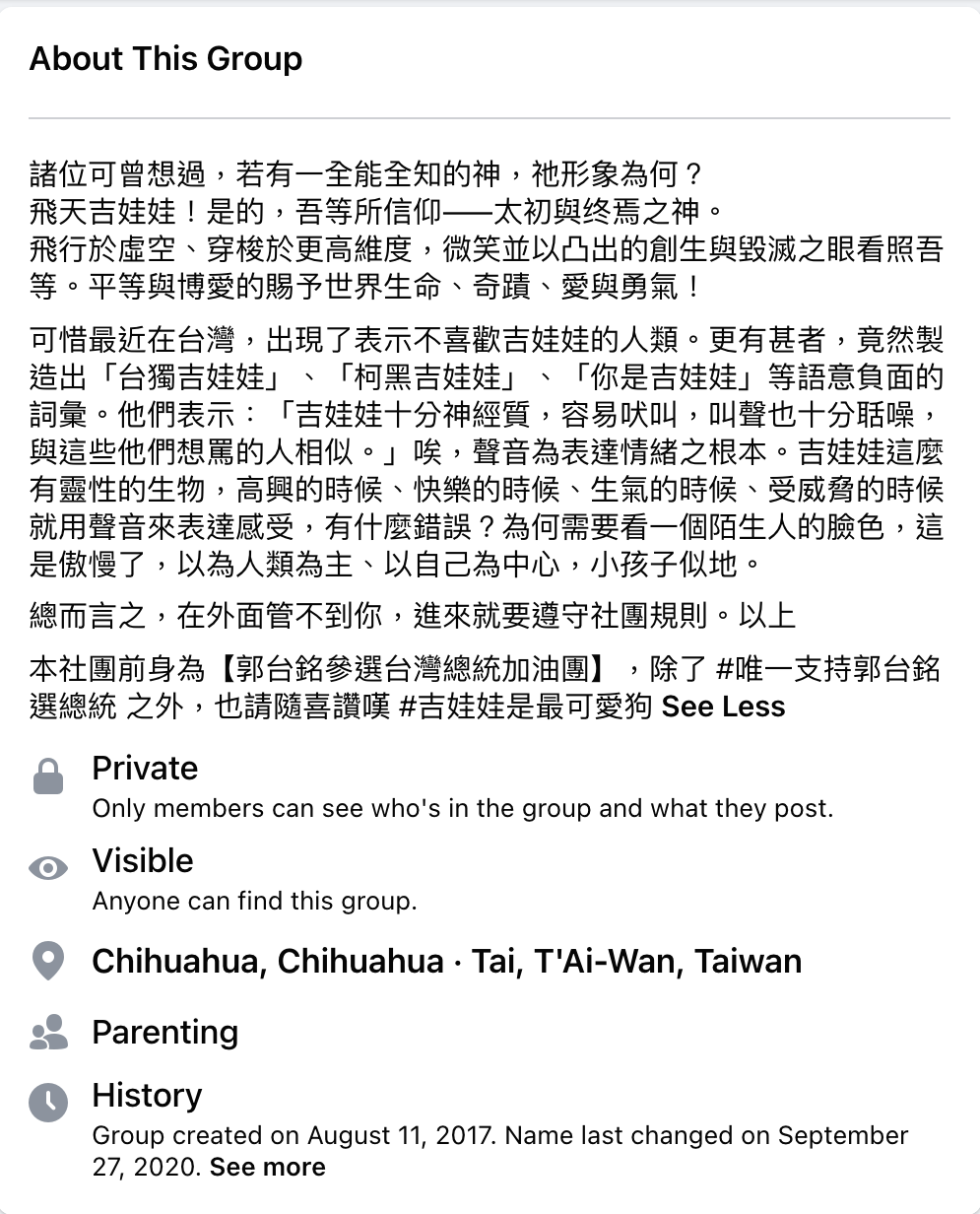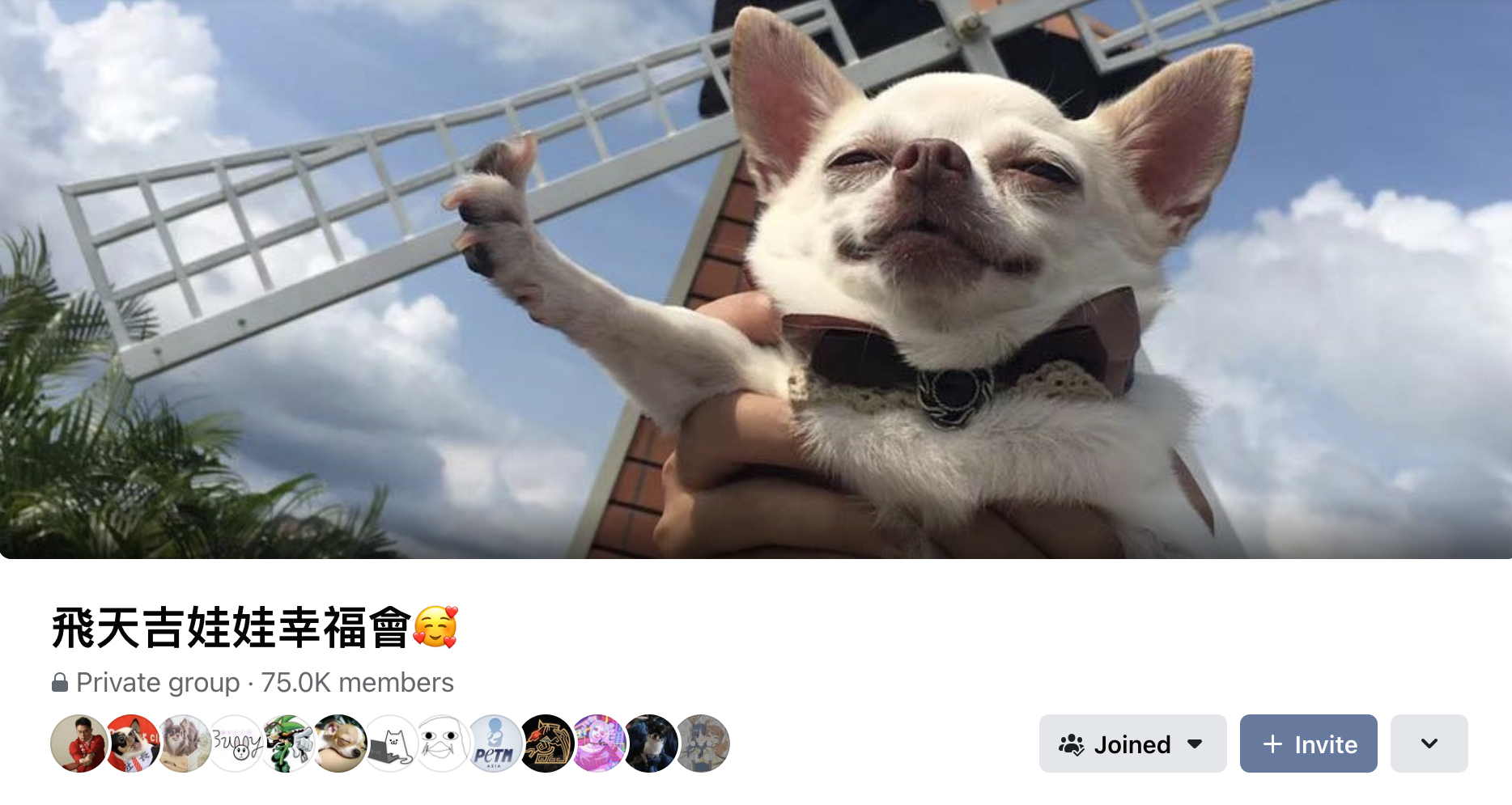by Brian Hioe
語言:
English
Photo Credit: Screenshot
I REMEMBER READING about a Google brain simulator, trained on the Internet, that automatically began to recognize cats. It goes without saying, but people sure do like their animal memes.
This seems to be the case with Taiwanese politics, too, with politicians trying to cater to the public with their pets. Tsai Ing-wen, for example, has featured her pet cats in election ads—includes on billboards that were multiple stories tall. Apart from two cats, Tsai is also the owner of three rescue dogs, which have also appeared in political advertising. During the 2020 elections, meet-and-greets were also held at the DPP’s election headquarters with Tsai’s dogs.
Tsai Ing-wen has a 5-story campaign ad above the Taipei Bridge featuring her and a cat. Rough translation:
Tsai: Tax cuts feel good
Cat: Buy me more treats pic.twitter.com/DkX1FNNDjs— Chris Horton 何貴森 (@heguisen) December 15, 2019
In a time of aggressive “wolf warrior diplomacy” from Chinese diplomats online, involving incendiary nationalist attacks, Taiwan has sought to differentiate its approach. Former legislator Hsiao Bikhim—who actually had found one of Tsai’s two cats after a typhoon—who is currently serving as Taiwan’s representative to the US, has touted Taiwanese “cat warrior” diplomacy as flexible and accommodating. Not all in the DPP have been happy with this approach, viewing this framing as something which will lead Taiwan to be taken less seriously on the international stage. Unsurprisingly, such comments went viral on the Internet, however.
While other KMT politicians have tried to replicate Tsai’s effective use of her pets in advertising, most have not been successful. During the 2020 elections, Han Kuo-yu frequently appeared with a cartoon Shiba Inu in advertising. Though this is reminiscent of the Central Epidemic Command Center—which coordinates Taiwan’s response to COVID-19—and its spokesdog Zongchai. But unlike Zongchai, no real dog has ever appeared.

Han Kuo-yu and his cartoon Shiba Inu
It may be that Han does not, in fact, own a Shiba Inu. Former KMT chair Hung Hsiu-chu has produced her pet tortoise in the past, however.
Still, the strangest animal story of all, when it comes to the intersection of Internet memes and animals, may go to FoxConn CEO Terry Gou. The Facebook group “Flying Apsara Chihuahua Happiness Society”, was originally a Terry Gou Facebook fan group during when Gou was seeking the KMT’s presidential nomination. The group has 74,000 members. Flying Apsara refers to a sort of celestial attendant that appears in Buddhism.
But when Gou announced his withdrawal from the race, the Facebook group suddenly announced that it would be rebranding as a chihuahua fan group. This seems to be one of a number of strange changes that the group has gone through, including having at one point been a Flying Spaghetti Monster fan group.
It’s hard to tell what’s real on the Internet these days. Sometimes when this kind of thing happens, it’s because of political astroturfing on social media by candidates. When someone doesn’t get paid, then the group might abruptly change purpose.
It’s less clear if that’s the case here. Otherwise, the group seems pretty focused on the joke of being a religious group devoted to chihuahuas. For example, the “About” page of the group describes chihuahuas as “the god of the beginning and the end”, and “flying through the void, passing through higher dimensions, and smiling while watching us with protruding eyes of creation and destruction.”

Screenshot of the “About” page of the Flying Apsara Chihuahua Happiness Society group
The group also specifies that supporters of Han Kuo-yu will be banned—looking through past announcements, award-winning actor Liu Kuan-ting also once fell afoul of the group’s rules and was banned, probably for not being a fan of Gou. The “About” page also expresses disapproval of “Taiwanese independence chihuahuas,” and “Ko hater chihuahuas,” referring to the Taipei mayor who is a possible political ally for Gou. One notes that another possible Gou ally, KMT majority speaker Wang Jinpyng, has been described as a “political chihuahua” before by members of his own party.
Under the “mentorship” section of the group, one of the first posts reads:
“For me, chihuahuas are already an integral part of my life. Nevertheless, we must retain a skeptical attitude toward Chihuahuas. As Shakespeare said, wisdom in the head is like flint. If you don’t strike it, it won’t go out. These words shocked me. The world needs change, we need to come to a new understanding of chihuahuas.
From this perspective, old ideas are outdated. We need to eliminate old ideas. Lermontov said that the will cannot be forced. This gets at the root of the problem. We cannot force change. Valery said in the past that the greatest misfortune of mankind is that human eyes do not close automatically, to block out unnecessary thoughts. I hope that each of you can deeply understand this passage. For regular people, who does the chihuahua represent?”
Another post reads:
“The appearance of chihuahuas will surely lead mankind to a higher state. Mohzi once said that a benevolent person must do good and eliminate evil. This passage is worth remarking on.
The chihuahua has no precedent. Chihuahuas are bound to control the future. Franklin once said something quite meaningful. Humility to the boss is a form of responsibility, humility to colleagues is courtesy, and humility to subordinates is dignity. Please read this three times over in your head.
As this implies, if you reflect well on this, you can understand the chihuahua. From this point of view, I have been reflecting on this day and night. Yangzi once said that one should first cultivate the self then befriend others. This passage continues to reverberate in my mind.”
So apparently religious fanatic Gou fans who love chihuahuas constitute the basis of the group. Still, it’s clear that a lot are in the group as a joke—a number of pan-Green politicians routinely press “like” on some of the posts, for example.
But, the Internet is a strange place. Maybe it’s not surprising. Despite having a last-name that is pronounced like “Guo,” Terry Gou goes by “Gou” in English—homonym for “dog” in Mandarin.



